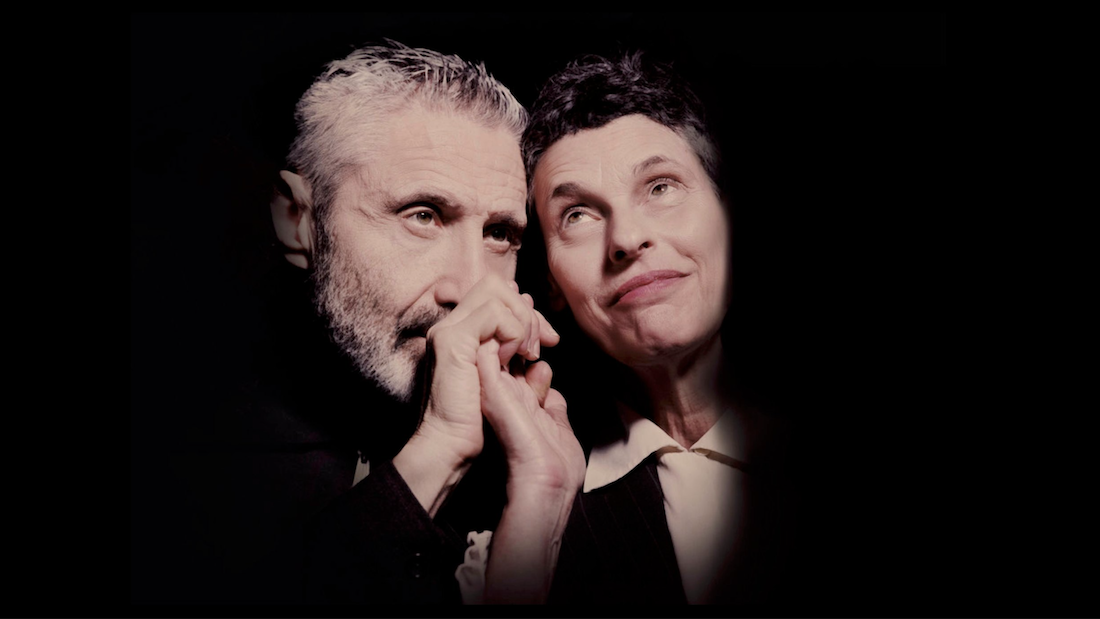
Every Day She Wrote The Book
Iconic Australian singer/songwriter Deborah Conway has transformed her 2023 memoir into a theatre show called Songs From The Book Of Life. It will feature as part of the Perth International Cabaret Festival on Sunday, June 16, at His Majesty’s Theatre, with tickets on sale now. BOB GORDON caught up with Deborah Conway to find out about the writing process.
Deborah Conway, as Frank Sinatra might have suggested, has always done things her way. From her early days as an actress and model, to fronting the always melodic yet often acerbic Do Re Mi, to a three-decade solo career that has withstood the slings and arrows of radio airplay and music industry fickleness, Conway has always stood strong.
Last year, Conway published her autobiography, Book of Life, which ponders all of the above in her trademark fearless manner. As individual in her pursuits as ever, Conway has transformed the memoir into a theatrical presentation with her husband and creative partner, Willy Zygier. And while performing her own songs can be revealing, this is another experience entirely.
“It is a very different kind of performance from what I’ve ever done before,” she says. “It’s presented different challenges and new avenues in which to be able to perform things. I have really enjoyed the process. I was very open in my memoir, so I’m not saying anything in the show that I haven’t already revealed. In fact, I’m probably more modest in the show than I was in the memoir.
“When I say modest, I mean I’ve kept things from the show that I had in the memoir, plus you can’t translate everything from a 400-page book into an 80-minute performance that is built around eight songs, but at the same time, it’s really a great way to tell a story with all the aspects you use to mount a theatrical performance. I think it’s a great combination of both—to be honest, a musical and theatrical presentation of a memoir.”
The fact that Conway has lived an interesting life may come as no surprise, but it seems that a memoir wasn’t always on the cards.
“No, I don’t think I felt that I was always going to write one,” she notes. “I wanted to write something for a long time, but I didn’t know what I would write. I do like the process of writing, but when I decided to write a memoir, I also found the idea of the process daunting. So I kind of tricked myself by writing essays around songs. I downloaded my APRA song list, picked 100 songs, and wrote 100 essays based on the titles, which resulted in a draft of the book being in alphabetical order. That (format) didn’t last long.”
A good deal of the book was written before the dawn of COVID-19 in March 2020, with Conway’s home city of Melbourne going on to become the most locked-down city in the world. Having this writing project to fall into turned out to be a godsend.
“We were locked down for a number of years in Melbourne, so there was really nothing else for me to do but sit on my couch and write and edit a lot of stuff,” Conway recalls.
“Having the project before COVID even hit and having decided that that was what I was going to be doing for at least a little while, I was in an extremely advantageous situation to go, ‘Well, there’s nothing else I can do. I’d best just sit down and do this’. And it was actually fun for me, because although the four walls could feel like they were closing in, the experience I was taking through my memory, notebooks, photograph albums, letters, saved memorabilia, and all the detritus that you can summon up over more than 40 years made for a serendipitous internal adventure that took me out of the four walls and exploring every day.
“That was great. I was grateful to have that experience, but at the same time, I was watching my children go completely spare. It was a dreadful thing for them—absolutely dreadful. There were serious ramifications from the lockdown in our household. It was abominable.”
Memory, it seems, is a quixotic beast. Does one remember what actually happened or merely what thought happened? Conway has a storied career and was able to access tangible reminders that served to trigger even more memories.
“I would start at one point and end up in a completely different place that I would not have imagined that I would go to,” she recalls. “Suddenly, memories were coming back, and I would surprise myself. It was a really interesting process and very entertaining.
“There were obviously physical triggers for that. I was digging through press clippings and talking to people who went through these things with me. I’d check to see if my memory was correct, and sometimes it was pretty accurate, and sometimes they’d shift me on a different path, but by and large, I surprised myself because I never thought I had a particularly good memory, but I guess when you start thinking about it, all these little corners and crevices appear. The mind is a wonderful thing.”
Writing the memoir and then transitioning it into a multi-faceted theatrical production has literally made much of Conway’s life an open book. She says that she had already made peace with elements of her past, but writing about them has helped put them in their place.
“It’s not that there were revelations for me writing about these things, but there are things I wrote about in this book that I have never told anyone,” she says. “So that was quite a thing, and of course to tell my mother… and she is talking to me, so that is quite refreshing (laughs).
“I think I came to a settlement with myself about the difficult things I wrote about. It wasn’t a process of healing so much as clearing out the cupboards and not having to keep looking at things.”
